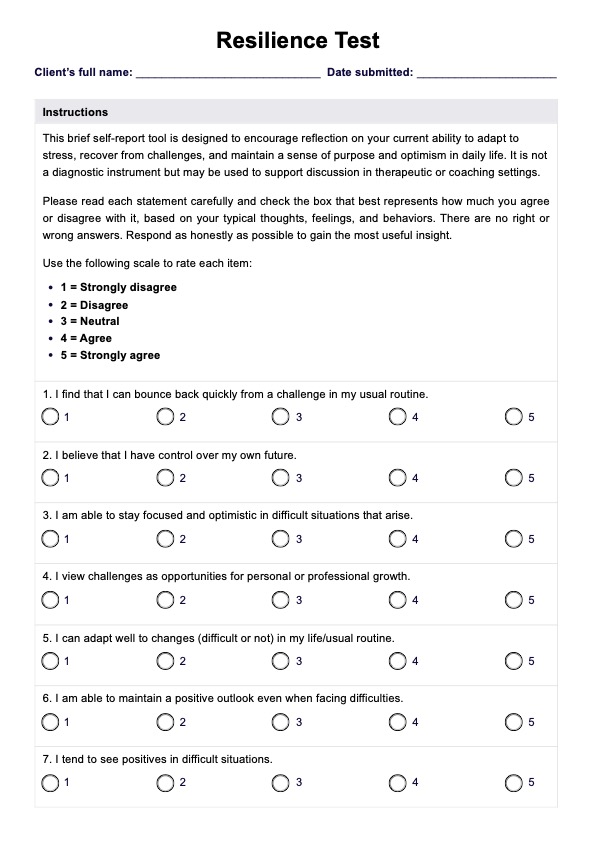There is no age limit on the Resilience Test. However, we would recommend you use this assessment with children above 12. This way, they will have a better and more comprehensive understanding of what the test is asking for.

Resilience Test
Click here to discover more about resilience and how to implement this test into your practice.
Use Template
Resilience Test Template
Commonly asked questions
As it is only ten questions, individuals completing this assessment may be completed in 5 to 10 minutes. It's important to remember that this is not designed to be a diagnostic tool, and further assessments may be required.
You know your client best. A high score on this test shows they are likely to have some traits that align with higher resilience.
EHR and practice management software
Get started for free
*No credit card required
Free
$0/usd
Unlimited clients
Telehealth
1GB of storage
Client portal text
Automated billing and online payments











